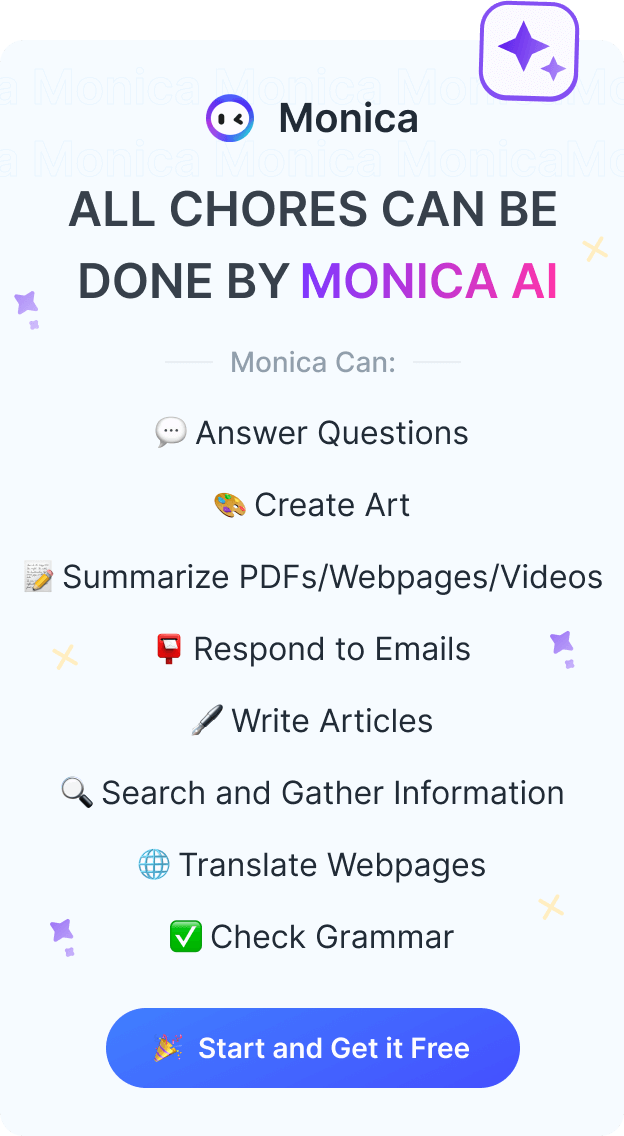Free Emoji Translator - Monica Tools
In the era of the Internet, we're increasingly fond of using emojis to express our emotions to others. The term 'emoji' originates from Japan, where 'E' stands for picture, 'mo' denotes writing, and 'ji' signifies character.
Emojis, with their visual impact, seem to be a superior source for expressing our feelings than mere words. But here's the rub - with over 3000 emojis out there, it's tough to pin down the exact meaning of each one. That's precisely why we've created Monica's Emoji Translator.
This tool, Monica's Emoji Translator, is designed to help you understand and use emojis more effectively. It's your go-to resource for decoding the language of emojis. So, whether you're a novice or a pro at using emojis, Monica's Emoji Translator is here to make your emoji experience better.
What is an Emoji Translator?
Monica's Emoji Translator is a tool that uses chatgpt to translate emojis into text or text into emojis. It's the easiest way to transform your words into more visually appealing content and to decipher the meanings of those confusing emojis!
Ever had a joyful thought that's just too hard to put into words? Translate it into an emoji. Or perhaps you want to understand what your 3-year-old niece is trying to tell you with a text full of happy cat and chocolate emojis? Translate them into text. It's as simple as that with Monica's Emoji Translator!
How does Monica's Emoji Translator work?
As mentioned earlier, our Emoji Translator is powered by the exceptional chatgpt. Chatgpt is a highly advanced natural language processing model, acting as the behind-the-scenes genius of our Emoji Translator. Thanks to its extensive training on a vast array of online texts and various writing styles, chatgpt has gained a deep understanding of the nuances in language expression.
When you input your emoji or text into our translator, chatgpt harnesses its massive data analysis capabilities to transform them into the content you need. With the support of chatgpt, Monica's Emoji Translator can always reveal the relationship between emojis and text to you.
Why do we need Monica's Emoji Translator?
Monica's Emoji Translator is the best AI Emoji Translator out there. It's perfect for those who need to convert emojis into text instantly or for anyone unsure about the meanings of emojis online.
1.Make your expressions more flexible and fun. Using emojis in communication isn't unprofessional. Instead, it sends a signal to others that you're a fun, flexible person. But with so many emojis and some older folks, like our parents, not knowing how to use them, that's where Monica's Emoji Translator comes in handy.
2.Text analysis and insights. For researchers or businesses, understanding the meaning behind emojis is incredibly valuable. It helps in analyzing social media and emotions, as well as understanding user behavior.
What Are the Best Practices for Using Emojis on Social Media?
1.Understand your audience's culture. Emojis aren't universal. In different countries, the same emoji may have different meanings. For example, the smiling emoji 🙂 doesn't always express joy in China or other Asian countries. It can also express doubt or distrust. The OK emoji 👌 is considered insulting in Brazil, as it's similar to flipping someone off.
2.Keep emojis relevant to your content. We use emojis to better convey our messages. Avoid using irrelevant emojis as they may distract or confuse your audience.
3.Consider the context. Emojis can indeed express emotions well, but choose wisely to match the situation and timing. Be careful with using emojis in serious or professional settings to maintain your professionalism.
4.Use emojis sparingly. Even though emojis can supplement your message, avoid using too many in a single piece of content. This could make your content confusing and disorienting for your audience.
5.Analyze performance. After posting your content, you can check engagement and audience reactions. Figure out which emojis resonate most with your audience and adjust your strategy accordingly.
6.When in doubt, use yellow skin tones. If you're speaking for yourself, you can choose the skin tone that best represents you. But if you're communicating with people from different regions and don't want to alienate anyone, many experts suggest using yellow skin tones. Unicode (the organization that maintains and defines emojis) considers the yellow emoji skin as "nonhuman," as it resembles a cartoon appearance. Unicode also suggests setting the yellow emoji as your default emoji.
How to use Monica Emoji Translator?
Step 1: Install and register for a free mn.9is.cc account
Monica is an AI assistant that provides free access every day, which means you can start testing Monica Emoji Translator with zero risk.
Step 2: Back to current page - "Emoji Translator" tool
Upon successful installation and registration, go back to the current page - "Emoji Translator" tool.
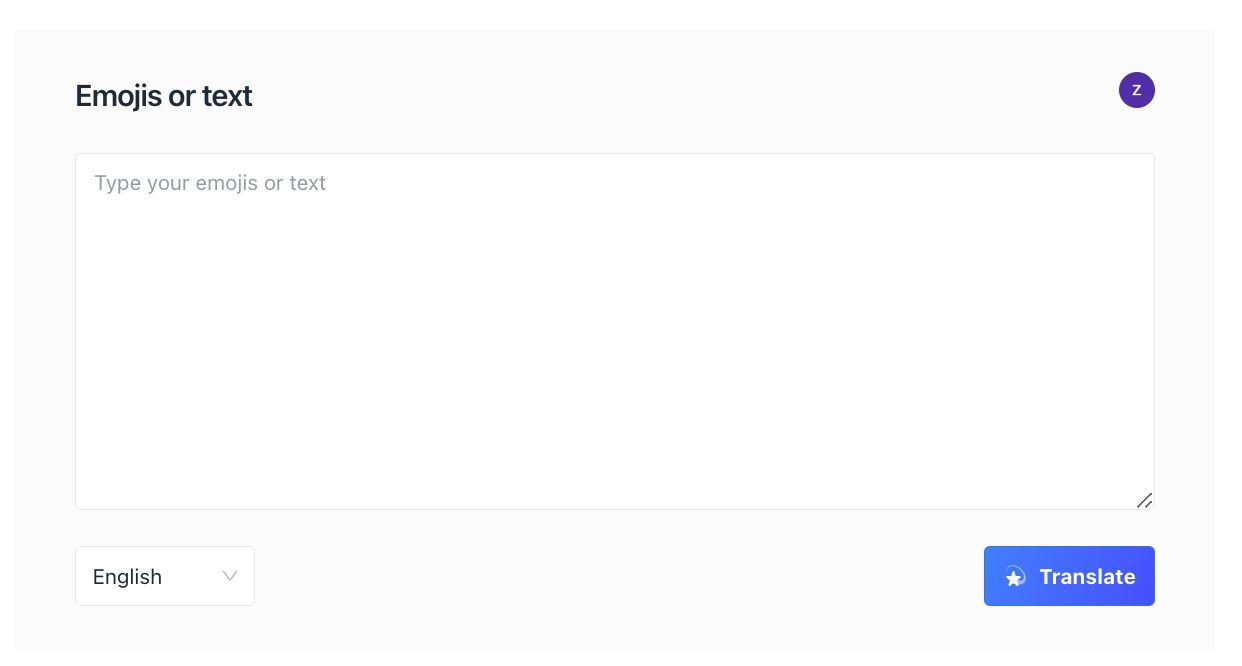
Step 3: Input your desired content, be it emojis or text
Whether you're entering emojis or text, Monica's Emoji Translator has got you covered. If it's emojis you've input, Monica's Emoji Translator will let you know their meaning. If it's text, Monica's Emoji Translator will spice it up with fun emojis.
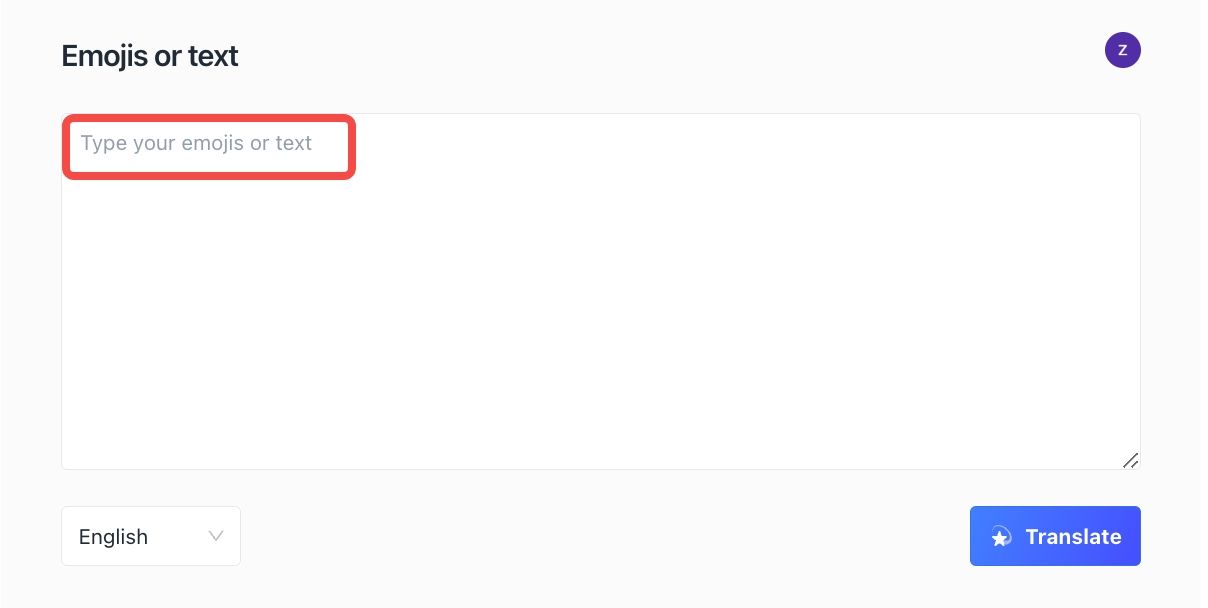
Step 4: Choose your language
Select your preferred language. Let Monica know which language you're using.
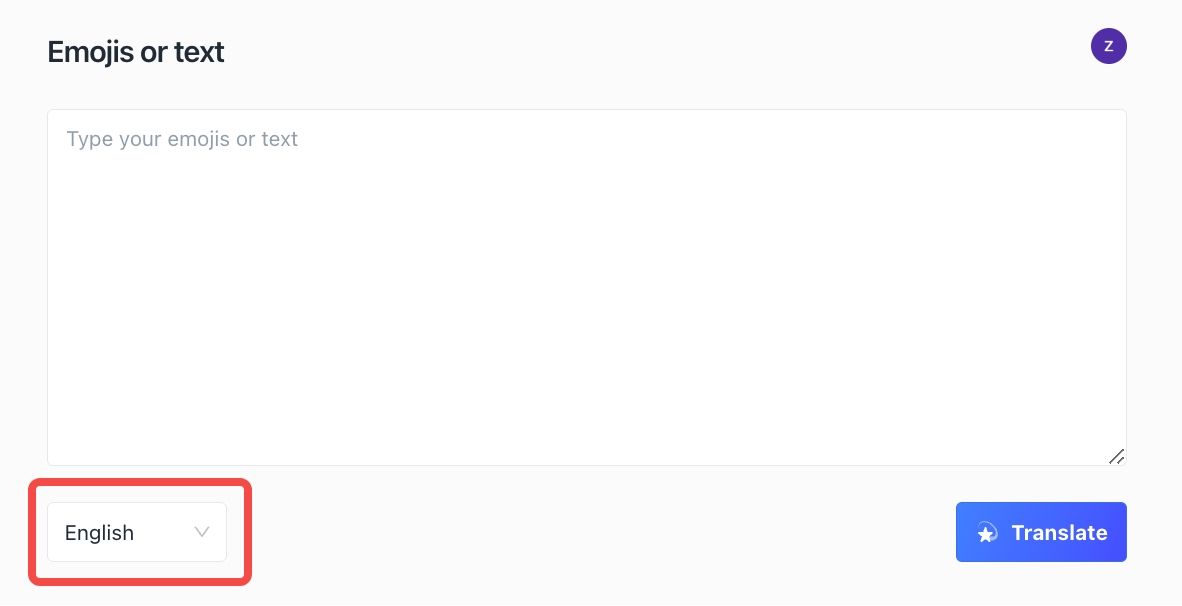
Step 5 : Click "Translate " and wait for the magic
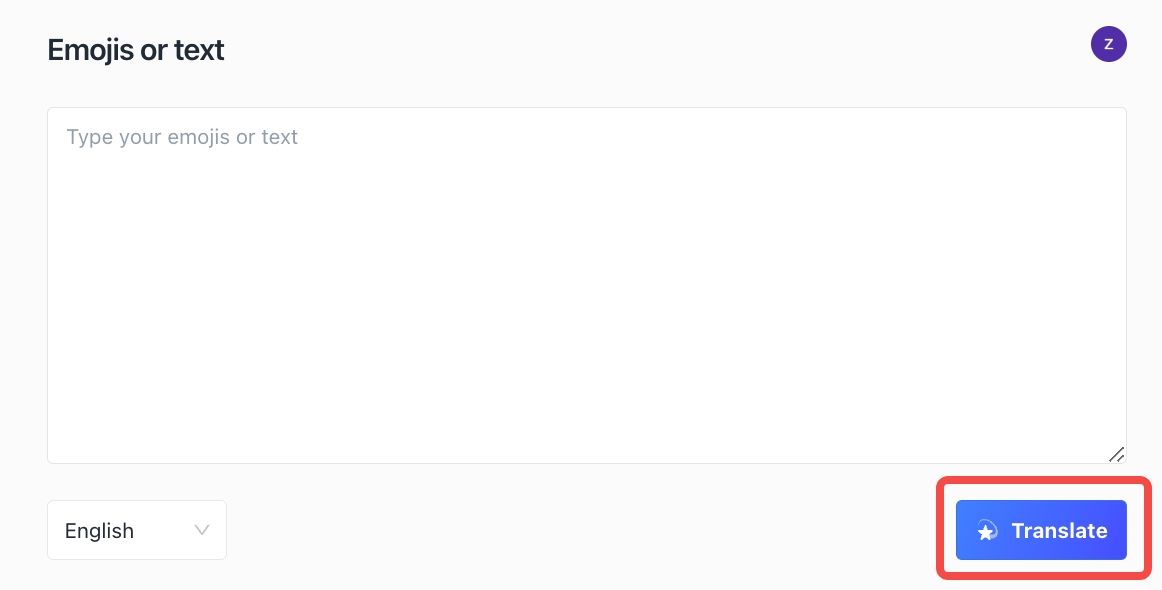
Other writing tools you may find helpful
In this tutorial, we looked at how you can use Monica Emoji Translator to better understand and use emojis. That said, this is just scratching the surface regarding what Monica AI is capable of.Here are a few of our most popular tools that you might be interested in:

